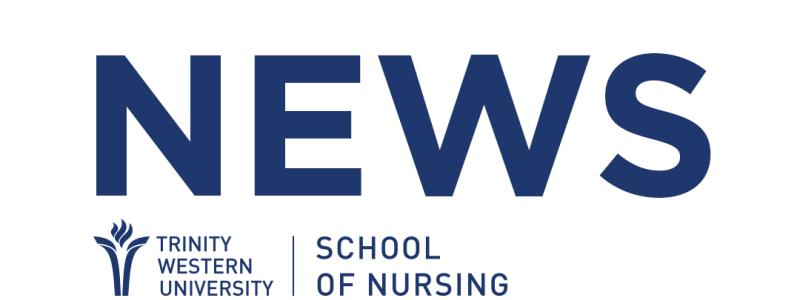
 Anne Redmond, MSN, RN, is the newest addition to the Trinity Western University School of Nursing. She has joined us as our first SIM lab Coordinator! Having completed her Master of Science in Nursing degree through TWU, Anne has a keen understanding of both our own nursing programs and our unique educational goals in the School of Nursing.
Anne Redmond, MSN, RN, is the newest addition to the Trinity Western University School of Nursing. She has joined us as our first SIM lab Coordinator! Having completed her Master of Science in Nursing degree through TWU, Anne has a keen understanding of both our own nursing programs and our unique educational goals in the School of Nursing.
We caught up with Anne to learn about her and her work in the TWU School of Nursing.
Where did you complete your own nursing education?
Upon completion of a Bachelor of Science degree in Biology from Dalhousie University in 1978, I decided to study nursing at the Victoria General Hospital School of Nursing, graduating from their program in 1980.In furthering my nursing career, I returned to Dalhousie University and completed a Bachelor of Nursing Science Degree in 1982.The position of clinical educator at Dalhousie University and the University of New Brunswick motivated me to enroll in a Master’s degree program.As a proud alumna of Trinity Western University, I graduated from the MSN program in 2013.
Could you tell us a little about what you did before coming to TWU School of Nursing?
I started my nursing career as a staff nurse at the Izaak Walton Killam Hospital for Children in Halifax, NS, in the Clinical Investigation Unit.I began teaching with the University of New Brunswick upon my return to nursing after parenthood. For the last 17 years, I have worked as a nurse educator in various capacities, but primarily teaching psychomotor skills in the nursing skills lab.
What are your educational nursing interests – what are you really passionate about?
My passion is to facilitate and develop student capacity in performing nursing skills with precision in ways that communicate compassion and caring to individuals. I love learning, and have a number of areas of interest, which include Simulation Learning, Interprofessional Education, Nursing Informatics, and Global Health.The use of Simulation in Learning and the wonderful resources we have in our new medium and high fidelity simulation labs is very exciting!
What is your new role in the TWU School of Nursing?
In my role as an assistant professor at TWU School of Nursing, I teach in the psychomotor and simulation skills lab. In addition, I serve as coordinator of the skills and simulation labs. This role includes everything from ordering supplies and managing pieces of simulation equipment to assisting other faculty in the use of simulation in their courses.
How does your current role include/make room for your interests?
My greatest professional interest is to create environments that maximizes cognitive, affective, and psychomotor learning. Reflecting upon my own kinesthetic learning style, I recognize opportunities for accommodating all learning styles through thoughtful planning of teaching and learning strategies as part of a skills lab. Both the skills lab and the simulation lab hold immense potential for the conceptualization of ideas to the evaluation of learning.
How would you characterize how the new Simulation labs bring value to the TWU nursing program?
The greatest benefit of simulation is in the fact that ‘doing’ often helps solidify ones’ understanding. It provides a safe practice environment where students can perform interventions planned in the care of individuals and families, and then reflect on the outcome of their practice. Students report a high level of satisfaction with learning in simulation environments. It is an opportunity to practice and improve health assessment, communication, teamwork, safety, clinical judgement and skill performance. It provides opportunity for educators to introduce students to both situations that may, or may not, occur within the students’ clinical experience (Jeffries, 2012).
As an example, the new simulation lab has been the site of disarray where a patient, tangled in bed sheets, alerts first year students to the potential realities of safe caring and communication with a confused individual. They practice the skills of assessment and effective communication.The second year students are completing their skill evaluation in the high fidelity lab, which allows us the opportunity to record (with video) their performance and share it with them, so they can self-appraise. Third year students have the opportunity to practice scenarios of acute changes in patients’ conditions, and participate in a simulated cardiac arrest. The new simulation brings the ability to record performances and debrief with the students: an excellent educational strategy. The medium and high fidelity mannequins, the new oxygen and suction equipment and the conformity of physical space to a hospital setting bring great value to the students’ experience. It is a wonderful opportunity to work with my colleagues in bringing this type of learning to life.

